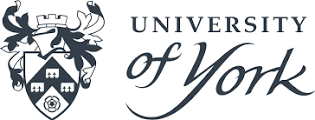This course aims to produce multi-skilled, highly competent graduates who are equipped to make significant contributions to their career field and who understand the implications of their work, both for themselves and for society as a whole.

This course aims to produce multi-skilled, highly competent graduates who are equipped to make significant contributions to their career field and who understand the implications of their work, both for themselves and for society as a whole.
The course has three integrated strands which develop mathematical foundations, computational thinking, and engineering skills. It's the combination of these three areas that make graduates attractive to employers, enabling an immediate contribution when moving into employment.
You'll be provided with a solid foundation in the principles and practices of data science, including relevant computer science components such as coding and machine learning, and mathematical areas such as probability, statistics and calculus. Key aspects of modern data science are covered, from the theoretical building blocks of linear algebra and algorithmics, to real-world implementations and discussion of the wider impacts that data science has on society.
You'll develop the technical skills needed to critically analyse, mine, and manage different kinds of data in order to learn and discover interesting patterns. You'll learn how to make actionable conclusions from those assessments, while participating effectively in multidisciplinary teams. Study culminates in a focused research project in the field of data science which develops the skills to contribute professionally to solving complex commercial and industrial engineering problems.
Course content
Year 1
Core modules
Academic integrity module
Year 2
Core modules
Year 3
Core modules
Option modules
You will study two option modules. Examples can be found below. Some option module combinations may not be possible. The options available to you will be confirmed after you begin your course.
Elective modules
Teaching and assessment
Teaching format
Facilities
Careers and skills
Career opportunities
Transferable skills
More specifically, we can identify four main skill areas:
The university of york is a public research university located in the city of york, england. It was founded in 1963 and is a member of the prestigious russell group, which represents 24 leading public research universities in the uk.
Key Features Of The University Of York Include
Campus
The university's main campus is situated on the outskirts of the historic city of york. The campus is known for its modern architecture and green spaces, offering a picturesque and conducive environment for academic and personal development.
Collegiate System
The university operates on a collegiate system, which means that students are members of both a department or academic program and a college. This system fosters a sense of community and provides various support services to students.
Academic Excellence
The university of york is renowned for its research and teaching across various disciplines. It offers a wide range of undergraduate and postgraduate programs in areas such as arts, sciences, social sciences, business, and more.
Research
The university has a strong research culture and is involved in numerous research projects across different fields. It has several research centers and institutes dedicated to advancing knowledge and addressing real-world challenges.
Rankings
The university of york consistently ranks well in national and international university rankings. Its strong emphasis on research and academic quality contributes to its reputation.
Student Life
The university provides a vibrant student life with various clubs, societies, and events. The city of york itself offers a rich historical and cultural experience, including museums, theaters, and a bustling city center.
Global Outlook
The university has a diverse international community and promotes global engagement through collaborations, partnerships, and exchange programs with institutions worldwide.
Innovation
York is known for its commitment to innovation and entrepreneurship. It supports students and researchers in developing their ideas and turning them into practical solutions through initiatives like incubators and accelerators.
Sustainability
The university of york places importance on sustainability and environmental responsibility. It has taken steps to reduce its carbon footprint and promote sustainability practices across its campus.
© 2025 coursetakers.com All Rights Reserved. Terms and Conditions of use | Privacy Policy